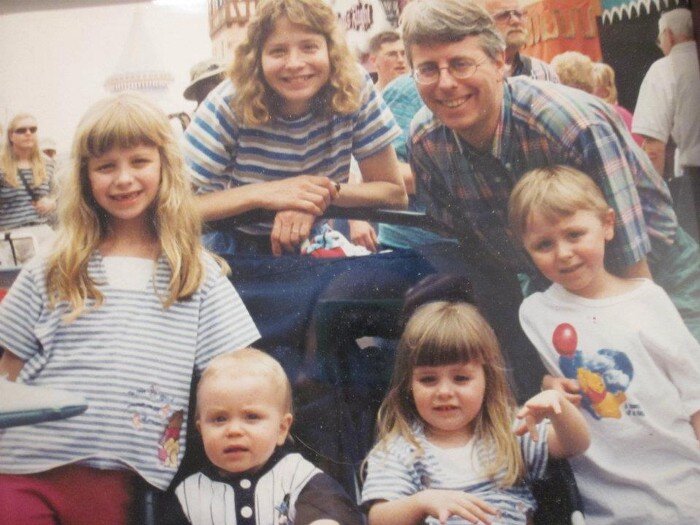Your knowledge matters — and now we’re doing something about it
My mom has many stories of medical care from when we were young. Stories of when she realized, almost too late, that he was choking on his tonsils. Stories of when she determined that the best course of care would be IVIG every 3 weeks, not every 4, and battled the insurance company to get it covered.
My younger brother was diagnosed with an immune deficiency as a toddler, and my mom quickly became a subject-matter expert. It wasn’t really a choice, she would say. This is what you do, when your child is sick.
This is also what you do when your parent is sick, when your spouse is sick, when you are sick. Looking for an anchor in a situation that often seems out of your control, you learn everything. You spend hours after midnight on Google, weeding through forums and WebMD and somewhat-suspect websites on alternative medicine. Day-to-day, you practice Mad-Eye Moody’s constant vigilance, seeing everything. Is the cough a little worse, has the fatigue always been like this? The small details are easy for you to notice, although the doctor might not measure a change.
If you think back, you have so many stories, too. You’ve figured out that something was wrong and pushed for a change in treatment, even when it didn’t seem medically obvious. You’ve learned what an allergic reaction looks like, or what a behavior change looks like, and now you’re keenly attuned to possible side-effects from every new medication. This intuition of yours is powerful, but it’s not mystical — it’s the result of thousands of hours of observation and learning, driven by the need to find the best possible care. In Malcolm Gladwell’s book, you’re an expert.
Somehow, though, it’s nearly impossible to relay all of this hard-won knowledge to the doctor. Wires are crossed in the chaos of the clinic, where it’s all you can do to give an uncertain response to the questions you’re asked, thinking back to the notebook where you have all that info and more, and knowing you can’t just ask this resident to read pages 16–20. The appointment is only so long.
This is frustrating for the care team, too. Medical science advances every day, but on the front lines, the inputs to decisions are imperfect. The history that a doctor receives from a patient in the exam room is never as accurate, nor as complete, as the case-studies that would lead her to a clear line of treatment.
You need a method to organize your thoughts, to relay all your observations in a way that makes sense. You want a clear report to give. In fact, you want this for you, not just for the doctor — so you can stay sane, and feel in-control.
I hear you.
This is why, nearly 3 years ago, I left my job and started an organization called Folia. It hasn’t been easy, but in the intervening time we’ve built, with the help of so many caregivers and patients, a way to harness your knowledge. You can create order out of the many thousands of hours of observation, and you can communicate clearly at the clinic. You deserve the personal, precise treatment plan that the case-study patient gets, and it really is possible.
Today, we’re kicking the bird out of the nest. After 3 pilot programs with some awe-inspiring early users and wonderful, receptive clinics, we’re launching Bridge by Folia. This is the easiest way for you to create that clear line of sight from your home to the clinic, to span the distance from your notebook to the resident’s ears — and we’d be honored if you’d try it.
Check out Folia for yourself, and consider nominating your clinic, too. Let’s harness the power of your many observations and take the next big step toward data-driven care.
You’ve earned it.

